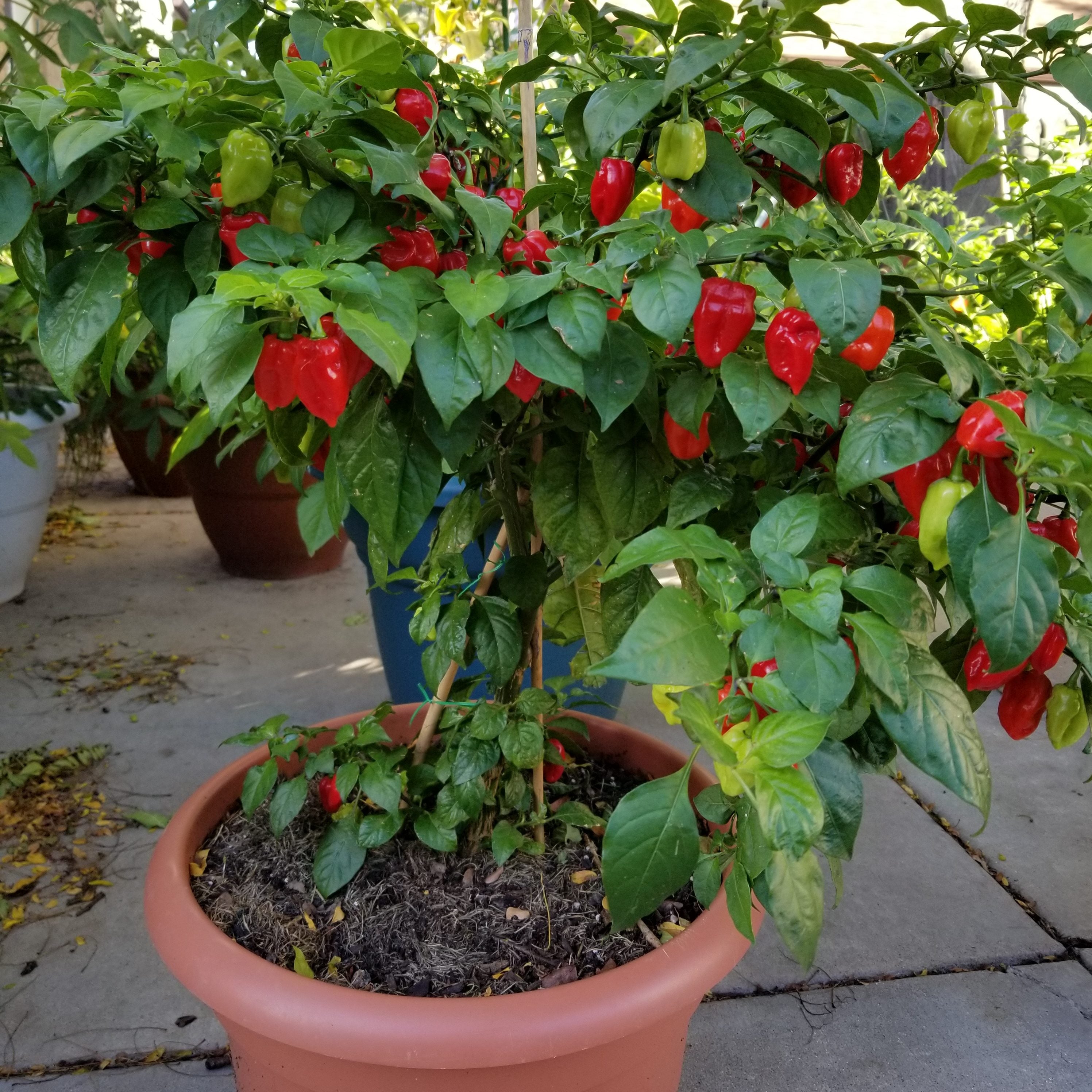Premier Fertilizers for Peppers: Improve Your Harvest Quality
Wiki Article
Organic Vs. Synthetic Fertilizers: Which Is Best for Nurturing Healthy Pepper Plants?
In the world of supporting healthy pepper plants, the option between organic and synthetic fertilizers stands as a pivotal decision with significant implications. While both alternatives objective to provide essential nutrients to sustain plant development, the subtleties of their effect on the dirt, plant health, and the environment trigger a dispute that echoes throughout the gardening neighborhood. Comprehending the distinctive advantages and prospective pitfalls of each plant food kind is critical for pepper growers looking for to enhance their yields while keeping a sustainable and eco-conscious approach.Benefits of Organic Fertilizers
Organic fertilizers use a sustainable and environmentally-friendly strategy to nourishing pepper plants, supplying necessary nutrients without using artificial chemicals. These all-natural plant foods are originated from organic sources such as compost, manure, bone meal, and algae, advertising dirt health and wellness and biodiversity. Unlike artificial fertilizers, natural choices release nutrients slowly, making certain a balanced and steady supply for pepper plants to grow.One significant advantage of natural fertilizers is their ability to boost dirt structure and water retention. By boosting soil wellness, natural plant foods promote useful microbial task, which assists in nutrient uptake by pepper plants. Furthermore, natural fertilizers minimize the risk of chemical run-off, securing water resources from pollution and securing the setting.
In addition, natural fertilizers add to lasting soil fertility by advertising the development of useful soil microorganisms. These organisms aid break down raw material, releasing nutrients in a kind that is quickly accessible to pepper plants. best fertilizers for peppers. By promoting a healthy dirt community, natural plant foods sustain sustainable pepper cultivation practices that benefit both plants and the environment
Drawbacks of Synthetic Plant Foods
Synthetic plant foods, in comparison to their organic counterparts, position numerous downsides when used to nourish pepper plants, influencing both plant health and ecological sustainability. One major drawback of synthetic plant foods is their tendency to leach nutrients from the soil swiftly.In addition, the overuse of synthetic plant foods can add to water air pollution. Excess plant foods not soaked up by plants can get rid of right into water bodies, resulting in eutrophication, where algae blossoms diminish oxygen levels in the water, hurting aquatic life. Synthetic plant foods are normally acquired from non-renewable resources, such as fossil gas, contributing to carbon discharges and environmental destruction throughout their manufacturing.
Nutrient Absorption Contrast
Effective nutrient absorption plays a vital duty in the overall health and wellness and development of pepper plants. When comparing organic and artificial fertilizers in regards to nutrient absorption, natural fertilizers have the advantage of supplying an extra balanced and slow-release resource of nutrients (best fertilizers for peppers). Organic fertilizers have a variety of macro and micronutrients that are not only useful for the plants however additionally advertise healthy and balanced soil microbial task, which helps in nutrient uptake. On the various other hand, artificial fertilizers commonly give a quick release of nutrients, which can cause leaching and runoff, leading to reduced nutrient absorption rates by the plants.Furthermore, organic plant foods improve dirt structure and water retention capacity, permitting pepper plants to accessibility nutrients much more efficiently. This better soil quality assists in root development, allowing much better nutrient absorption. Artificial plant foods, although at first increasing plant development as a result of their high nutrient focus, might hinder long-lasting nutrient absorption by derogatory dirt wellness in time.
Ecological Effect Factors To Consider

On the other hand, synthetic fertilizers, although frequently even more immediately available and concentrated to plants, can have destructive results on the environment if not used correctly (best fertilizers for peppers). Their production needs high energy inputs, resulting in greenhouse gas discharges and adding to climate change. Additionally, the browse around this site drainage of excess artificial fertilizers can infect water sources, causing eutrophication and hurting aquatic ecosystems.
Finest Plant Food Practices for Peppers
To accomplish this, it is necessary to comply with ideal plant food methods customized to the certain needs of pepper plants. One essential practice is to carry out a dirt examination before applying any kind of plant foods.One more important method is to feed pepper plants at the ideal time. Commonly, peppers profit from getting plant food at planting and after that once more when they start to blossom. Over-fertilizing can lead to nutrition inequalities and harm the plants, so it is important to adhere to advised application prices.
Furthermore, picking a balanced plant food with an NPK ratio that suits pepper plants' requirements is essential. Inevitably, integrating organic and artificial fertilizers sensibly can assist nurture healthy and balanced pepper plants while lessening ecological impact.
Final Thought

Organic Learn More Here fertilizers use an environmentally-friendly and sustainable method to beneficial pepper plants, offering important nutrients without the use of synthetic chemicals. Unlike artificial fertilizers, natural alternatives launch nutrients gradually, ensuring a stable and well balanced supply for pepper plants to flourish.
Artificial fertilizers, in comparison to their organic counterparts, present different disadvantages when made use of to nourish pepper plants, impacting both plant wellness and ecological sustainability. When contrasting organic and artificial fertilizers in terms of nutrient absorption, natural plant foods have the advantage of providing a more balanced and slow-release source of nutrients.In addition, natural fertilizers enhance dirt structure and water retention capacity, permitting pepper plants to accessibility nutrients extra successfully.
Report this wiki page